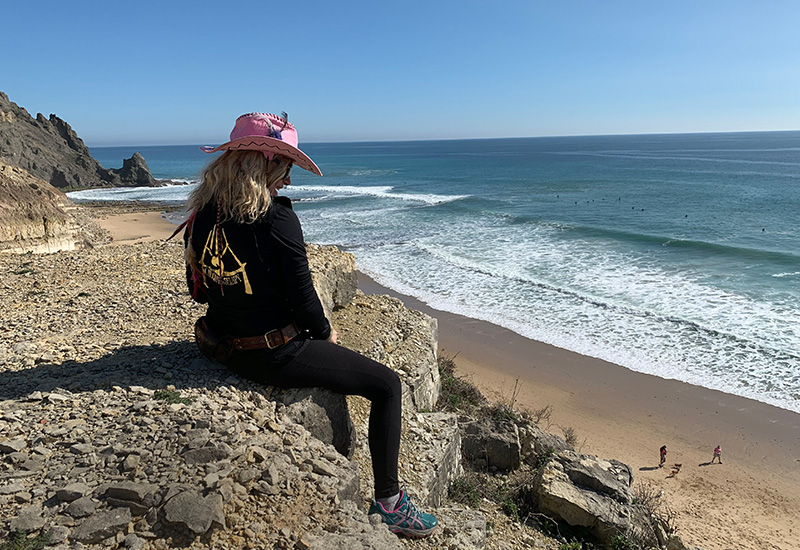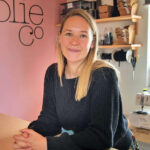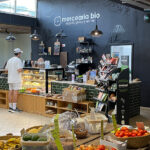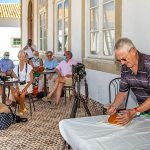“It’s like stepping back in time 30 years,” replied the well-dressed, British retiree. It was the fall of 2019. I was in a small coffee shop at the edge of Luz. We had been told that the Algarve is “the epicentre of tourism with epic nature and good schools”. We were scouting property for a retreat centre. I asked everyone I met the same question – “what’s it like to live here year-round?” Although I had picked up on some oddities (our real estate agent didn’t use WhatsApp, for example), that distinguished gentleman’s answer didn’t fully make sense.
It takes time to understand what people mean when they say life here is “a bit behind” (the kind version). Or “the Algarve is slow” (slightly less kind version). Or “you have to be patient,” (understatement of the century).
So in October of 2019, in that small cafe bathed in sunshine a few metres from the sand, I nodded politely and thanked the gentleman for his opinion. I had no idea that Portugal had a monumental lesson in patience in store for me.
I’ve got this, I remember thinking. I’ll just transform ‘slow’ into ‘fast’. Now I realise the error of my thinking, the truly unrealistic audacity of my mindset. After just over three years, I am starting to get it. If I were to write an acrostic poem for Portugal, the first word would most definitely and appropriately be, with a gigantic capital P: Patience.
P is for Patience.
O is trickier. It’s not obvious like P. For me, O brings to mind Opportunity. This is a relatively wild landscape. People are free to imagine new things here, to create their dreams in a way that isn’t possible in expensive, crowded cities.
R is for Rainbows. I’ve never seen as many as I have here in the Algarve – and often two at once.
T is for Trust. You need a certain amount of trust to keep going despite the obstacles life throws in the way here. Things take a lot longer than anywhere else (to put it mildly). Trust helps you get through the days when all you want to do is pull your hair out, rant to a friend and pack your bags and get on the next flight out of Faro.
U is for Unexpected. In any move to a new country where you don’t understand the culture very well and you aren’t yet fluent in the local language, expecting the unexpected saves you. Once you get past thinking you know into realising you have no idea, you’re over halfway to success. Staying flexible is part of that. I imagined a retreat centre of a certain size and in the end, I’ll be starting far, far smaller. In my own backyard, in fact. But at least it’s happening.
G is for Gratitude. And Goodness. In Portugal, I learned that the best way to get over depression is to focus on gratitude. Goodness describes the amazing locally grown produce that I buy faithfully every Saturday morning directly from the farmers. There’s also the goodness of the pristine colour of the Atlantic Ocean’s waters right off the coast; the goodness of the local people and their kind and gentle dispositions; the goodness of the natural beauty that surrounds you here and makes it possible to forget about the frustrations of having to learn patience the hard way.
A is for Adagio. It just keeps coming back to the same thing in this circle: slow tempo. It’s how I answer people when they ask what life in Portugal is really like. “What’s it like to live there?” My answer: Slow. Like stepping back in time 30 years.
L is for Leisure. It seems to be the central focus here – surfing, paddle tennis, yoga, mountain biking, golf – it’s a nature and sport lover’s paradise. Add the calm pace of life to that leisure and it’s probably why so many people are moving here permanently. But the downshift from gear five to barely in gear at all is so dramatic that it’s hard to explain to people who haven’t been here (or even those who have but who don’t live here).
Why does everyone say it’s like stepping into the early 90s?
At the municipality, computers are a new thing and most of the transactions are still handwritten and actually accomplished by going in person, taking a number and waiting your turn to speak to someone. Many businesses are still ‘cash only’, including tourist shops, restaurants and cafes. Gas boilers are still commonplace. Everyone has a cell phone, but they’re not always on it. Things eventually happen, but it takes an age.
It’s a strange and beautiful place Portugal. It is certainly a place with peace. And a place that will teach you patience, whether you’re ready or not.
Meredith Price Levitt is a freelance writer for over 20 years and a recent immigrant to the Algarve. She’s learning Portuguese, how to plant cucumbers and building a hexagon for aerial arts. You can reach her meredithmprice@gmail.com













